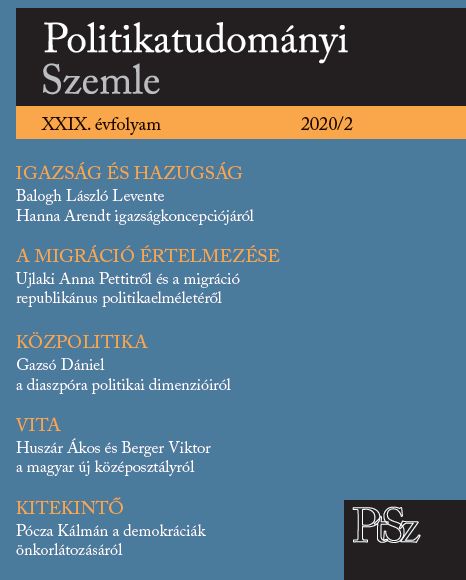Politika a posztfaktikus korban. Hannah Arendt az igazságról és a hazugságról a politikában
Politics in the ’Post-Truth’ Age. Hannah Arendt on Truth and Lies in Politics
Author(s): László Levente BaloghSubject(s): History and theory of political science
Published by: MTA Politikai Tudományi Intézete
Keywords: Hannah Arendt; truth; lies; ’post-truth’; propaganda; image
Summary/Abstract: The statement about the ’post-truth’ age seems surprising in light of the fact that politics have always confl icted with truth, and telling the truth has never been one of the virtues of politics. There was no period in history in which truth was particularly valued in politics, or in which it was made a basic principle of selecting politicians. And yet the increasing attention paid to the relationship between politics, truth and lies suggests that there has been a change in their relationship. What is novel is not that truth has lost its signifi cance and effect in politics, but how politicians and political audiences react to it. Could politics be based on truth? Is it possible not to lie at all? It would be naive to think that lies could be eliminated from politics, and yet we cannot accept politics based on lies, because that would be cynical. It seems we have no choice but to accept that there are spheres in which we must accept, or at least tolerate the possibility of lying, but at the same time demarcate areas in protection of communal efforts in which we do not only reject lies, but consider the expression of the truth to be the only option.
Journal: Politikatudományi Szemle
- Issue Year: XXIX/2020
- Issue No: 2
- Page Range: 7-22
- Page Count: 16
- Language: Hungarian

